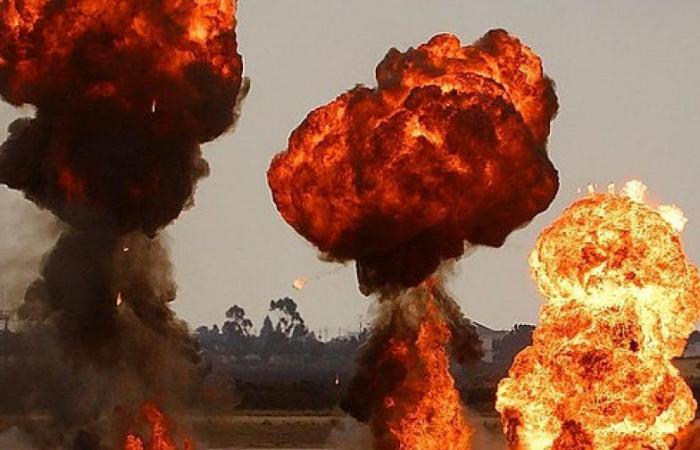
In the Polish town of Khmelnytsky there was a big panic over iodine medicine and the local authorities are taking children out of the town – Why did the British give depleted uranium tank missiles to the Ukrainians and who will pay for the damage after the Russian strike?
What they finally throw at the war in Ukraine, especially the Kiev side, of course we do not know, and we will definitely find out after the holiday, while we suspect that depending on the outcome of the operations, we may also see regular nuclear weapons.
Well-known political scientist Yakov Kedmi reported an increase in the level of radiation in the air in eastern Poland.
The expert posted information on his Telegram channel.
“Measuring instruments in the Polish city of Lublin on May 15 detected a significant increase in the levels of bismuth, a decay product of depleted uranium used in munitions,” he said himself.
Where will the radioactive cloud end up after Poland?
According to Kedmi, Polish residents speculate that Russia’s strike on a depleted uranium ammunition depot (649th Air Force depot in Ukraine’s Khmelnytsky region) may be the source of the threat.
In this regard, in the Polish city of Khmelnytsky there was a big panic about iodine drugs, and local authorities are taking children out of the city.
However, the press service of the Administration of the Khmelnytsky region states that there is no radiation risk for the population of the region.
Russian scientists also explain that the formation of a carcinogenic cloud from detonating depleted uranium missiles is possible, but not guaranteed.
American anchor Clayton Morris on the Redacted News show commented on a video distributed by the British Ministry of Defense of Challenger 2 tanks, in which the Ukrainians are trained to fire various types of projectiles, including depleted uranium projectiles.
Morris recalled the danger of depleted uranium missiles, the use of which can cause the development of cancer, and stressed that this way Ukrainian troops will destroy their country.
On the evening of May 13, the Russian military struck warehouses where depleted uranium shells supplied to Ukraine from the West were stored.
Ukrainian Colonel Gennady Berezin warned of the danger of depleted uranium missiles.
He pointed out that inhaling radioactive dust causes lung cancer. There is also a risk of secondary contamination when growing agricultural products and grazing animals.
We remind you that satellite images of an ammunition and explosives warehouse in the western Ukrainian city of Khmelnytskyi showed that most of the infrastructure disappeared from the map.
Depleted uranium is used in munitions because of its high density, which in turn allows for greater penetration. However, uranium worries the world about its effect on human health and the environment.
The increase in radioactivity after the accident can have long-term effects on the population and the environment of the area.
Depleted uranium used in anti-tank missiles can cause serious kidney damage in soldiers and children who inhale or swallow its particles, a new report by Britain’s Royal Society has concluded.
No one cares about Chernobyl after all and some people are playing dirty games with the population in Europe. Where is the EU and other agencies to stop this killing of Ukrainians first and now Poles?
Tags: radioactive cloud Radioactivity levels rise southern Poland depleted uranium missile depot explosion





